Incredibly, on June 4th, 2024, the Conservative party, supported by various so-called “sex-based” rights groups, made an election pledge to change the Equality Act 2010.
This potential alteration may well become part of the Conservative manifesto, making it a topic for voters in the General Election 2024 – meaning trans people, in particular those who had struggled to overcome the incredibly high threshold of achieving a Gender Recognition Certificate (GRC), would lose those human rights associated with a GRC.
This short article delves into the alleged reasons for this proposed change and the influential actors advocating for it.
We all want privacy and dignity when using some services, including toilets and changing rooms, in a hospital or, heaven forbid, if we are unfortunate enough to find ourselves in a refuge or, worse still, prison, and we wish to make it clear that TransLucent supports the needs for single-sex spaces.
However, we do not support blanket bans or the roll-back of human rights of trans people.
Toilets & Changing Rooms
When you go to the loo or a changing room, have you noticed a trans person using the facility at the same time as you?
Probably not; about 50% of trans people don’t leave their homes for fear of abuse on the street. Trans hate crime has increased by around 1513% over the last decade because of the culture war on the trans community, and unsurprisingly, trans people invariably look just like everyone else. The chances of bumping into one of us in a loo are roughly five hundred to one.
We know there is not an issue for the general public because we asked (via Freedom of Information Requests) the 50 largest councils how many complaints they received about trans women using their toilets and changing rooms (generally located at leisure centres) during 2022 and not one council reported a complaint.
NHS hospital wards
We all want privacy and dignity there, don’t we? So what’s the issue?
Well, again, there isn’t one.
TransLucent has made 282 Freedom of Information requests to NHS Foundation Trusts (or equivalent) over a period of three years and three months. In total, over four separate investigations, we found just one minor complaint about a trans woman occupying a bed in a female ward. We don’t know what the complaint was, but it has been confirmed that it was minor and that it did not require further action.
Putting this in perspective, every year, over six million women are treated in NHS hospital wards, and correspondingly, patients make about 200,000 written complaints about their care annually.
Women’s Refuges (is there a problem?)
Most womens refuges are privately owned, so they can’t be subject to Freedom of Information Requests. However, we know that all service providers vet women before gaining access to a refuge.
Many can’t accept women with children over a certain age (often twelve) or if the woman has substance abuse problems. These people are frequently refused entry – the same can and do apply to a trans woman.
Some refugees do accept trans women, invariably because they operate on an “independent living model”, which means the survivor of domestic abuse is housed in an apartment or flat, not in a communal refuge.
However, most LGBT+ people who suffer domestic abuse don’t use regular domestic abuse services. Galop is a UK charity that supports LGBT folk in domestic abuse situations, and the charity Loving Me exclusively supports trans people suffering domestic abuse.
In short, trans people have a dedicated domestic abuse service.
Prisons
How many trans women are held in a female prison in England and Wales?
Six.
None are sex offenders, and all would be medicalised and had lower surgery.
The prison population varies, but about 97% of trans women are held in the male estate, where they are regularly sexually abused by men.
Sadly, no one talks about that, and the MoJ will not provide details; they have continually refused Freedom of Information Requests.
Sports
Just a tiny fraction of the trans community plays any sport whatsoever.
No one will be able to name a current elite trans woman athlete in the UK – there aren’t any.
Since 2004, trans women have been eligible to compete at the Olympics, but only one has, Laurel Hubbard from New Zealand, and she came last!
In truth, over the last few years, regulations have been tightened so much that trans women are effectively banned from competing in “meaningful competition” in virtually all sports in the UK.
That is a human rights violation.
In Summary
Who drove this and all the other problems that the trans community faces?
A movement that calls themselves “sex realists”, “terfs”, or “gender-critical” who advocate against trans people and specifically trans women.
Many within their movement did similar against gay people back in the 1970s and 1980s – they have the same aims – to eradicate LGBT people socially, promoting the “nuclear family”, and wealthy evangelicals with far-right views support them.
Some organisations hide their transphobia (the prejudice against trans people) under the guise of women’s “sex-based rights”. Horrifyingly, some have actually advocated for conversion therapy for trans youth, though they veil it using different words.
In this short article, we have explained why the Equality Act works perfectly well.
Thank you for reading.




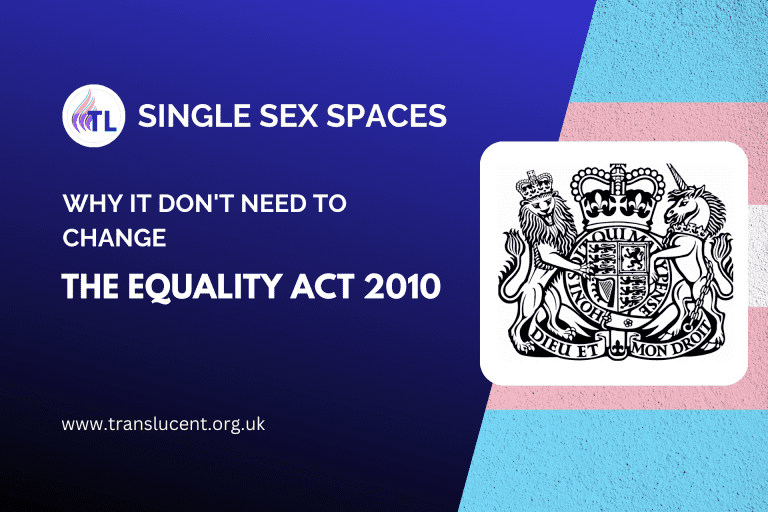
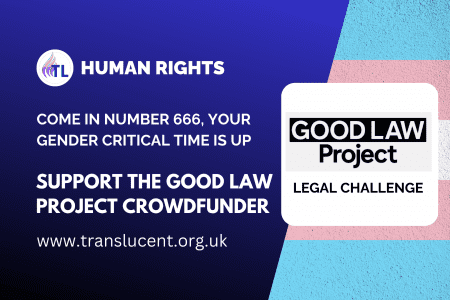
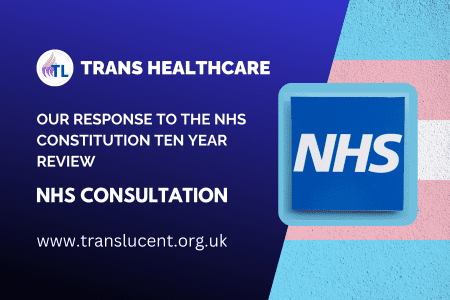
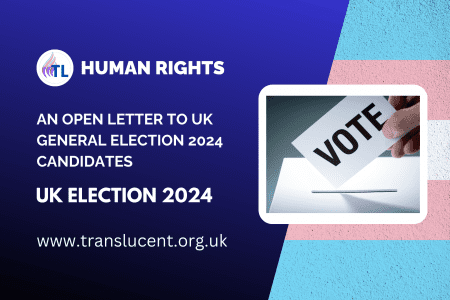
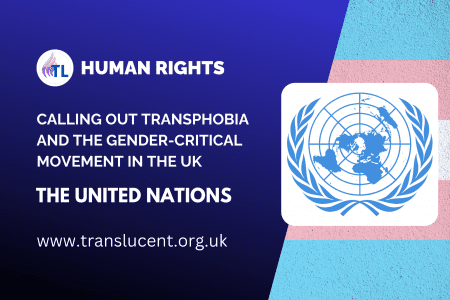

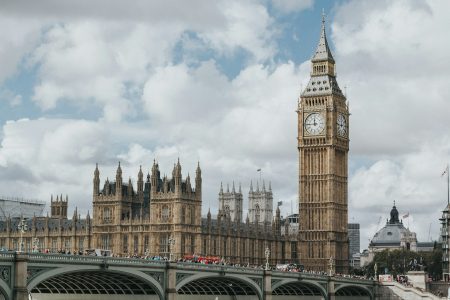
 To provide the best experiences, we use technologies like cookies to store and/or access device information. Consenting to these technologies will allow us to process data such as browsing behaviour or unique IDs on this site. Not consenting or withdrawing consent, may adversely affect certain features and functions.
To provide the best experiences, we use technologies like cookies to store and/or access device information. Consenting to these technologies will allow us to process data such as browsing behaviour or unique IDs on this site. Not consenting or withdrawing consent, may adversely affect certain features and functions.